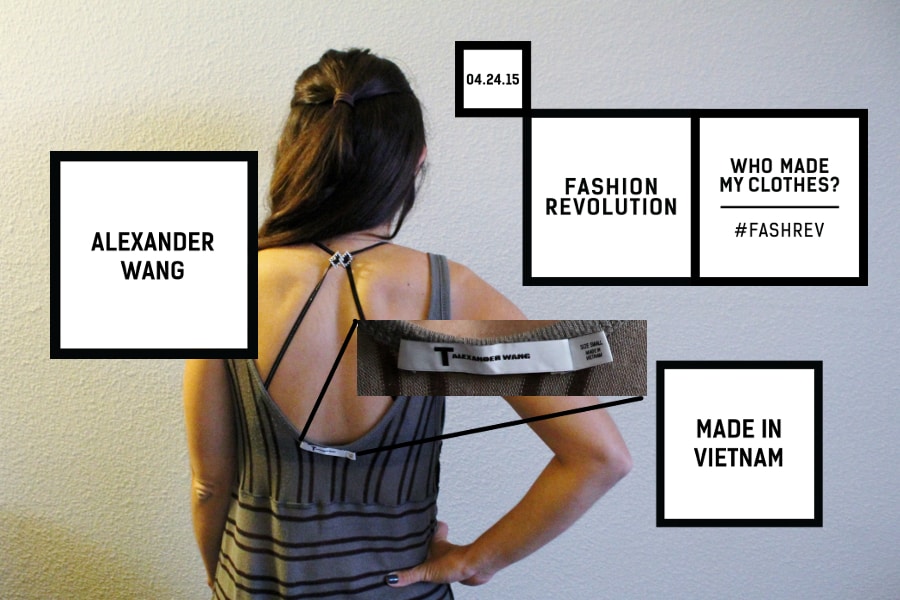Have you ever wondered the process that your clothing has gone through before reaching your hands? That’s the question that the second-annual Fashion Revolution campaign, taking place today, urges participants to ask major clothing brands worldwide.
To join the campaign, in which Costa Rica is participating for the first time alongside 70 other countries, simply upload a selfie on Instagram in which your clothing labels are visible. Tag the photo @Fash_Rev and use the hashtag #whomademyclothes.
Fashion Revolution strives to support social justice within the fashion industry by acknowledging the work of farmers and garment workers.
Carry Somers and Orsola de Castro, co-founders of Fashion Revolution, chose April 24 as the date for the campaign to commemorate the Rana Plaza disaster that occurred in Dhaka, Bangladesh two years ago today. An eight-story commercial building housing clothing factories collapsed because of a structural failure, killing 1100 people and injuring 2500 others.
In the aftermath of the tragedy, it was revealed that garment workers in the building were ordered to ignore the cracks in the walls and return to work. The event drew attention to the substandard work conditions of garment workers in Bangladesh and other countries around the world.
“Fashion Revolution is about building a future where an accident like this never happens again. We believe knowing who made our clothes is the first step in transforming the fashion industry,” de Castro said in a statement from the organization.
The fashion industry has also affected the environment, spending two billion dollars in chemical pesticides for cotton crops each year, according to the statement. Meanwhile, in Cambodia, recent years have seen incidents of mass fainting by malnourished and impoverished garment factory workers.
“When everything in the fashion industry is focused on making a profit, [then] human rights, the environment and workers’ rights get lost. This has got to stop, and we plan to mobilize people around the world to ask questions,” Somers said.
The campaign also includes a series of ‘social media takeovers,’ or scheduled events hosted on Twitter at @Fash_Rev so people interested in issues such as revamping old clothes, finding out where leading brands produce their garments, and hearing first-hand accounts of garment workers’ experiences can share information.
For more information, visit Fashion Revolution’s website.






